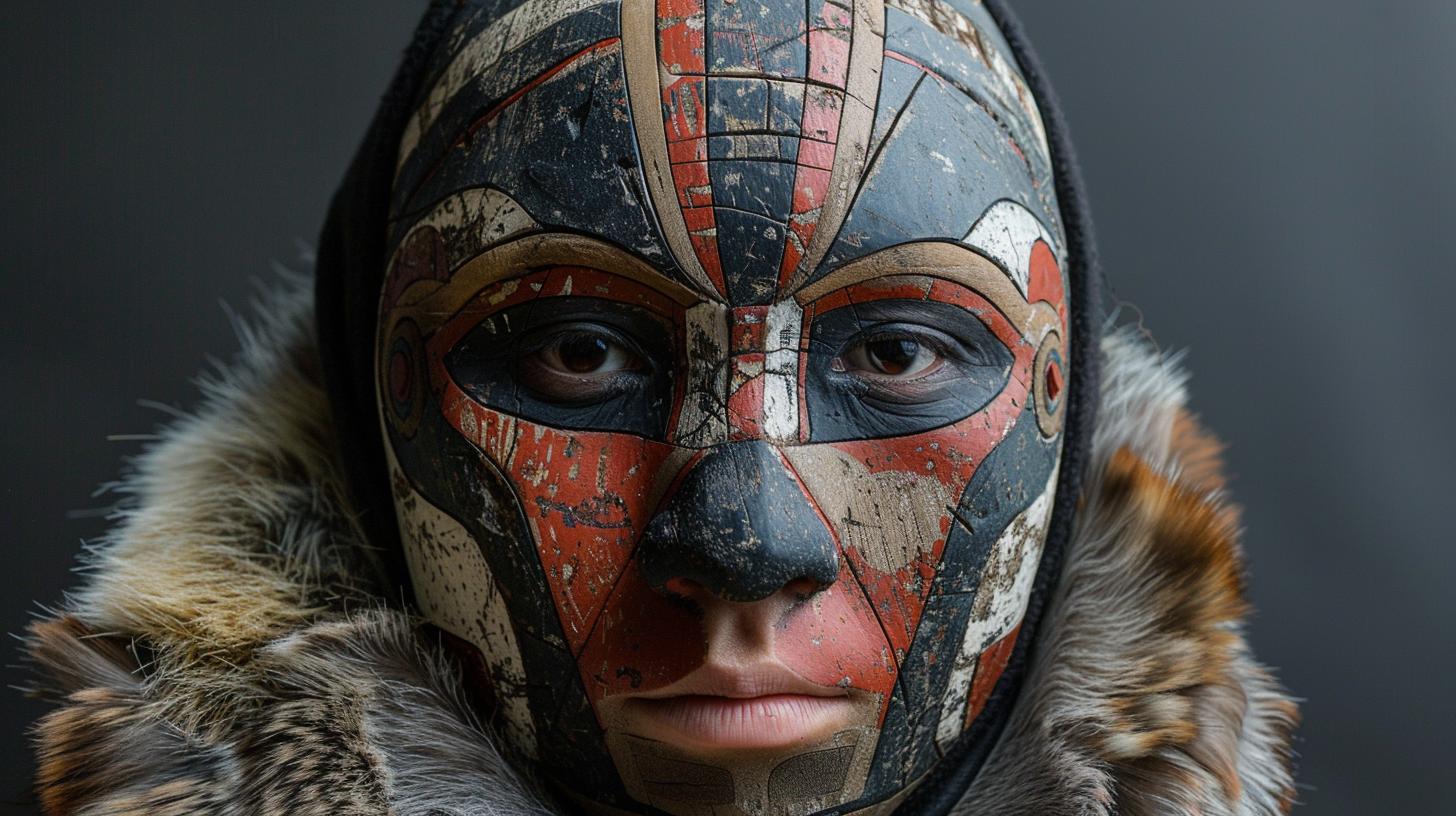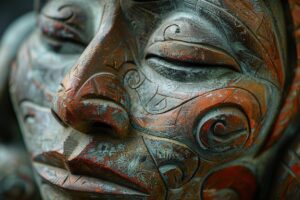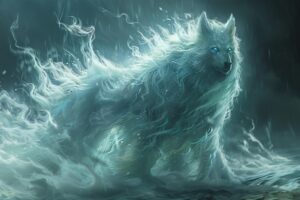Akna: The Inuit Goddess of Fertility and Motherhood

Akna is a pivotal figure in Inuit mythology, deeply revered as the goddess of fertility and motherhood. Among the diverse pantheon of deities and spirits that populate Inuit religious beliefs, Akna stands out for her profound connection to the creation and nurturing of life.
In the harsh and often unforgiving landscapes of the Arctic, where the Inuit people have lived and thrived for centuries, fertility and the successful rearing of children are particularly vital concerns.
It is in this context that Akna’s role becomes especially significant, embodying the ideals of protection, care, and benevolence towards all creatures.
Akna, the Inuit Goddess
Known for her role in childbirth and as a provider of blessings, Akna is invoked for her guidance and support during the birthing process.
Childbirth, a critical event in the continuity and survival of the community, is enveloped in rituals and prayers dedicated to Akna. Families seek her blessings for the safety of both mother and child, and for the assurance of a smooth transition into the world.
Inuit mythology is rich with stories and legends that illustrate Akna’s powers and her interventions on behalf of her devotees.
Beyond her association with childbirth, Akna is also a spiritual guide, offering wisdom and direction to the Inuit people.
Her influence extends to the very fabric of Inuit society, reinforcing the bonds between individuals, families, and the larger community. As a nurturing force, Akna is seen as a mother to all, caring not only for humans but for the animals and the environment as well.
This holistic view of motherhood reflects the Inuit understanding of the interconnectedness of life, where every creature plays a role in maintaining the balance of the natural world.
The worship and veneration of Akna are expressed through various cultural practices and expressions.
Traditional songs, dances, and storytelling sessions often feature tales of Akna’s deeds and virtues. These artistic expressions serve not only as entertainment but also as means of imparting important cultural values and teachings to younger generations.
Through these stories, Inuit children learn about the importance of compassion, resilience, and respect for the natural world.
In contemporary times, the figure of Akna continues to hold relevance for many Inuit people.
As cultures evolve and adapt to changing circumstances, the ways in which deities like Akna are honored and remembered may transform. However, the core values and ideals that she represents remain steadfast.
For modern Inuit communities, Akna symbolizes the enduring strength and resilience of their culture, as well as the perpetual cycle of life that sustains it. Her legacy is a source of inspiration and comfort, reminding individuals of the protective embrace of motherhood and the power of fertility to renew and enrich the world.
In conclusion, Akna embodies the cherished principles of fertility, motherhood, protection, and guidance within Inuit mythology. Her revered status among the Inuit people underscores the critical importance of these concepts in their culture and way of life.
Her legacy, celebrated through stories, rituals, and cultural practices, continues to resonate with Inuit people today, illustrating the timeless relevance of their traditions and beliefs.
.









